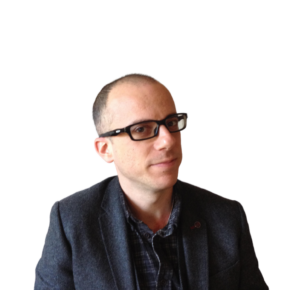Yes, you finished a short story. Yes, you finished a novel. Maybe you even sold a novel. Sold several, in fact. Readers seemed to enjoy them. You got a great review in The Guardian. You’re earning good royalties. But, so what?
You’re still a con. If things go wrong – if you don’t manage to finish the story, or finish the novel, or sell the novel, or get superstar status – then it just goes to show you’re an imposter. A pathetic pretender playing a game well out of their league.
And if things go well – and you do finish the story, or you finish the novel, or you become the next Angela Carter – then it goes to show modern editors are dumb and modern readers are tasteless. But they’ll find out their mistakes sooner or later, they’ll amend their ways, and you’re going to fall from grace, as you deserve.
Like all irrational impulses, imposter syndrome is hard to outwit and even harder to defeat.
Whatever happens, you’re proven right about feeling like an imposter. Whatever happens, you’re like a conspiracy theorist, searching for evidence that your theory is correct. Aliens land in your garden? There you go, the government was hiding them all the time. Aliens fail to show up? Of course, the government keeps hiding them.
Most artists (big and small, world-famous or unknown) have to deal with imposter syndrome. I’ve found a solution that works for me, and I want to share it with you. Here’s the thing, it may not work for you, but I hope it provides some food for thought at least.
The solution is pretty simple: rather than run from the feeling of being a scam, run towards it. Embrace it to the full.
There is no point in trying to find reasons why you’re not an imposter if you already decided you are. So you may as well be the best imposter there is. You’re creating art, after all. The stakes aren’t too high if you make a few mistakes. If you can embrace the feeling, embrace being an imposter to ease your worries – why shouldn’t you?
Although the short story was never written, you will keep pretending you can indeed write it. Although the editors didn’t realise your book is actually terrible, you will keep taking their money. What’s the harm? Yes, maybe they’re deceived. Well, tough luck for them.
And yes; maybe one day the world will realise what a scam you are. But as long as it’s not today, you’re fine, just keep going.
Let the future version of you deal with the problem when it comes. Meanwhile, keep writing until you finish that story, or keep selling your books if you’re at that stage.
All art is about making things up. All artists are tricksters. It’s okay to be an imposter. There’s nothing else you can be.
Find out about our online course with Francesco, Creativity for Writers, and learn how to defeat your imposter syndrome.






















